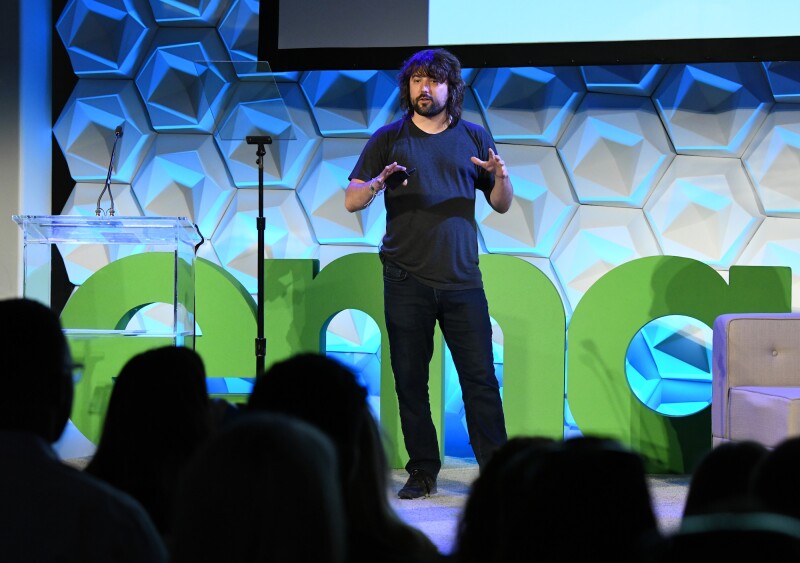Disposable plastics are inundating our oceans, overwhelming recyclers and even getting into our bodies. But when it's time to buy more laundry detergent or deodorant, what's a well-meaning consumer to do—other than buy still more plastic?
A new service aims to solve the problem by drawing on an old idea: reusable containers dropped at your doorstep. But instead of just milk bottles, it might be a tub of ice cream or soap, later cleaned and refilled by a company called Loop, which launched this year in New York and Paris.
Loop is Tom Szaky's vision to reimagine a deeply broken recycling market. Chances are, that big plastic detergent tub you throw away isn't getting recycled. Only 9 percent of plastics in the world have been, according to one study. In the U.S., for example, it's getting harder for recyclers to make a profit, partly because China isn't taking our trash anymore.
"What makes something recyclable is not about ... the technical ability to do something," Szaky says in an on-stage interview. "It's simply about economics."
Szaky knows this problem perhaps better than anyone. In 2001, he dropped out of Princeton University to found TerraCycle, a Trenton, New Jersey-based company that collects and processes hard-to-recycle waste.
The real solution to the recycling crisis, he believes, is not to make the trash in the first place. Recycling "is not solving waste," Szaky says. He points to a paper coffee cup as an example: You own it, but you don't want it.
Partnering with brands including Procter & Gamble, Unilever and Nestlé, Loop offers more than 100 products on its U.S. site, from mini pretzel chips to muffin mix. Customers pay a refundable deposit for durable, sleek containers that get shipped back to Loop when empty. The containers, which are made from aluminum, steel, plastic and glass, can survive at least 100 reuses.
In a recent profile, Szaky explains that for Loop to have a meaningful impact on the environment, he needs to work with—versus against—corporate America. "My goal consumer is someone in the middle of America who may still even not be convinced on climate change,” he says, “because if I can get him to participate, then we can really change the world. This is why we're working with the largest manufacturers, the largest retailers. Because that is what America likes today."
For now, brands are looking at Loop as a way to learn about what works and what doesn't. It will require a bigger scale to realize both profits and environmental benefits. According to Procter & Gamble sustainability chief Virginia Helias, it takes five return-and-refill cycles for Loop to be better than single-use packaging from an environmental standpoint. "We hope can go way beyond that," she says, "but that's exactly why we are testing in market."
Ultimately, Loop's prospects will be made or dashed by whether customers embrace the idea. The website makes a simple, but compelling plea: “We cast votes every day, with our money, for the future we want. Cast that vote for products that are regenerative and circular, instead of destructive and linear, and share our dream—that one day we can look back on the concept of waste as an anomaly that we are grateful to have moved beyond.”


